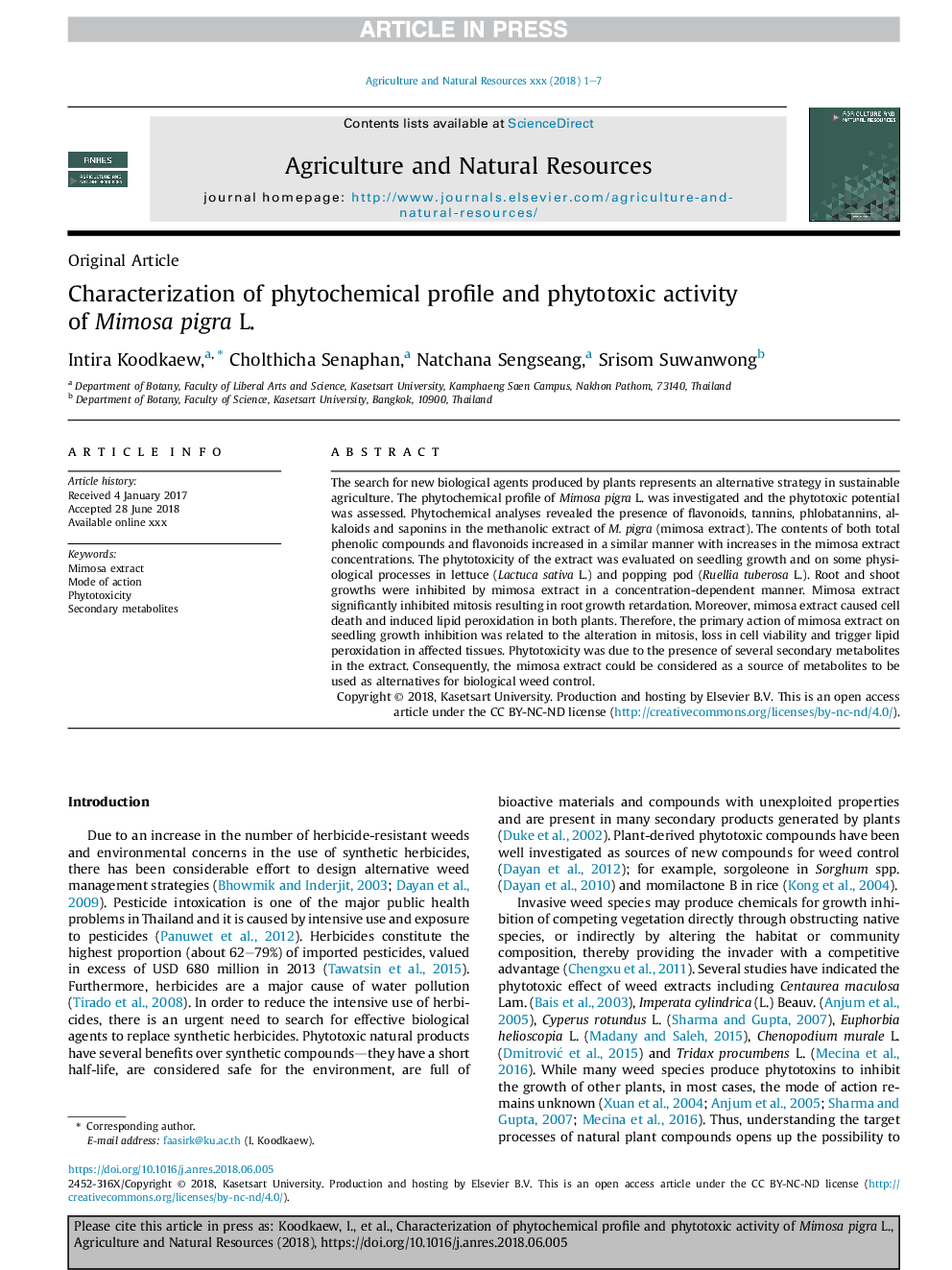| Article ID | Journal | Published Year | Pages | File Type |
|---|---|---|---|---|
| 10224958 | Agriculture and Natural Resources | 2018 | 7 Pages |
Abstract
The search for new biological agents produced by plants represents an alternative strategy in sustainable agriculture. The phytochemical profile of Mimosa pigra L. was investigated and the phytotoxic potential was assessed. Phytochemical analyses revealed the presence of flavonoids, tannins, phlobatannins, alkaloids and saponins in the methanolic extract of M. pigra (mimosa extract). The contents of both total phenolic compounds and flavonoids increased in a similar manner with increases in the mimosa extract concentrations. The phytotoxicity of the extract was evaluated on seedling growth and on some physiological processes in lettuce (Lactuca sativa L.) and popping pod (Ruellia tuberosa L.). Root and shoot growths were inhibited by mimosa extract in a concentration-dependent manner. Mimosa extract significantly inhibited mitosis resulting in root growth retardation. Moreover, mimosa extract caused cell death and induced lipid peroxidation in both plants. Therefore, the primary action of mimosa extract on seedling growth inhibition was related to the alteration in mitosis, loss in cell viability and trigger lipid peroxidation in affected tissues. Phytotoxicity was due to the presence of several secondary metabolites in the extract. Consequently, the mimosa extract could be considered as a source of metabolites to be used as alternatives for biological weed control.
Related Topics
Life Sciences
Agricultural and Biological Sciences
Forestry
Authors
Intira Koodkaew, Cholthicha Senaphan, Natchana Sengseang, Srisom Suwanwong,
